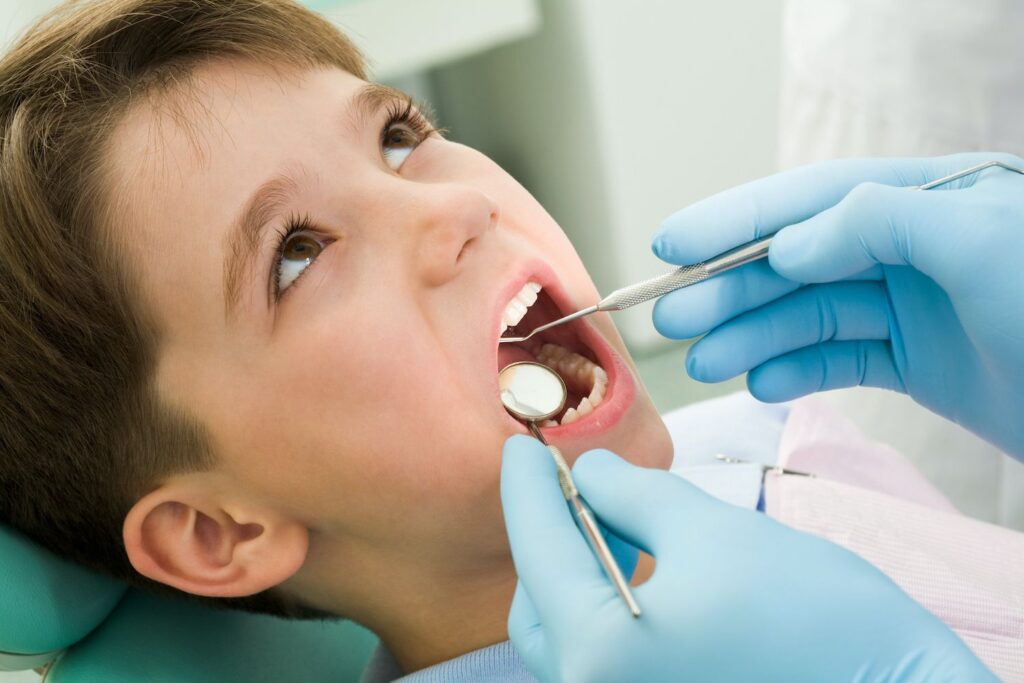It can be tricky to get kids involved in their oral health. Consequently, they can develop issues without proper care. Kids’ smiles are meant to last a lifetime. So, it’s crucial that they get extra care. If you can get your kids involved in their oral hygiene routine, they can protect the vital parts of their oral health, especially their gums.

What’s in a Smile? The Role of Gums
Gums may seem like the pink background for the stars of the show: teeth. But, in reality, they play a significant role in your child’s oral health. Gums hold teeth in place and protect the sensitive tooth roots. They also provide a barrier against harmful bacteria. So, keeping them healthy is essential.
Oral Health in Kids: Is It a Concern?
Some people think that kids are immune to oral health issues. Unfortunately, that is not the case. Children can develop the same dental issues as adults. For example, children are susceptible to tooth decay in their baby teeth. If not addressed, they can lead to gum problems, pain, and potential infection. It’s a common concern in young children who consume sugary snacks and drinks.
Another issue kids can develop is gum disease. While it’s often associated with adults, children can develop gingivitis, too. It results from poor oral hygiene. This can lead to bleeding, swollen gums, and bad breath.
If your child sucks their thumb, it can lead to dental problems. Prolonged thumb-sucking can put pressure on the gums and change the alignment of teeth, potentially leading to gum problems.
When baby teeth emerge, some children may experience gum discomfort and inflammation. While this is typically temporary, it’s essential to soothe their discomfort.
Causes of Gum Problems in Kids
One reason why kids develop gum problems is due to poor oral hygiene. Children who don’t brush and floss regularly can develop gum problems, just like adults. Encouraging good oral habits from an early age is crucial.
A child’s diet can influence their gum health. Consuming excessive sugary foods and drinks can lead to cavities, which can, in turn, affect the gums. Limit sugary snacks and encourage a balanced diet.
Sometimes, gum problems can be hereditary. If there’s a family history of gum disease, it’s essential to be extra vigilant with your child’s oral health.
Finally, certain medications can impact gum health. Be aware of any potential side effects and discuss them with your child’s healthcare provider.
How to Spot Gum Problems in Kids
It is crucial to know how to spot the signs of gum problems. If you catch them early, your dentist has a better chance of eliminating dental concerns.
If your child’s gums bleed when they brush or floss, or if they appear swollen, it’s a sign that something might be wrong. Also, chronic bad breath can be an indicator of gum problems or cavities.
Keep an eye out for dark spots or redness on the gums. You should discuss any noticeable changes in color with a dentist.
